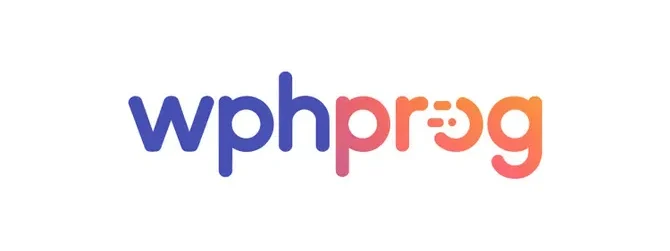WordPress powers over 40% of the web, and behind every dynamic theme or plugin lies one fundamental language — PHP. While WordPress allows you to build websites without writing a single line of code, mastering PHP gives you the power to customize everything: themes, plugins, and even WordPress core behavior.
If you’ve completed foundational programming courses like CS50x or CS50P (CS50 suite of courses from Harvard), you already have a solid understanding of computational logic, data structures, and problem-solving. But PHP for WordPress adds a practical layer — it’s about applying programming concepts to the most widely used content management system (CMS) in the world.
Why Learn PHP for WordPress?
WordPress relies heavily on PHP for:
- Rendering dynamic pages (posts, categories, products)
- Managing user roles and permissions
- Handling database interactions via
$wpdb - Creating plugins and custom shortcodes
- Hooking into the WordPress API with actions and filters
In essence, PHP lets you go beyond drag-and-drop design — it empowers you to develop.
How CS50 Learners Have an Advantage
If you’ve done CS50x (Introduction to Computer Science) or CS50P (Introduction to Programming with Python), you already know how to:
- Think algorithmically
- Break down problems into logical steps
- Write reusable functions and loops
- Work with variables, conditionals, and data structures
This means you can pick up PHP quickly. The syntax is different, but the logic is the same. Instead of learning programming from scratch, you’ll be learning how WordPress implements programming concepts.
Top PHP-Based WordPress Development Courses
1. PHP for WordPress Development — Udemy
- Platform: Udemy
- Skill Level: Beginner to Intermediate
- Duration: ~1 hour (video-based)
- Focus: Teaches PHP fundamentals through the lens of WordPress theme and plugin development.
- Why It’s Great: You’ll learn loops, conditionals, and functions specifically as they appear in WordPress. Perfect for those who already know a programming language like Python and want a quick transition to PHP.
Best for: CS50x or CS50P graduates who want to quickly “translate” their knowledge to PHP in a WordPress environment.
2. PHP for WordPress Developers — WPShout
- Platform: WPShout
- Skill Level: Beginner to Intermediate
- Format: Text + interactive code examples
- Focus: Real-world PHP for WordPress — arrays, loops, functions, and hooks.
- Why It’s Great: The content skips generic PHP concepts irrelevant to WordPress, keeping your learning focused. It’s free and perfectly paced.
Best for: Learners who prefer reading tutorials and experimenting locally using LocalWP or XAMPP.
3. Object-Oriented PHP for WordPress Developers — WPShout
- Platform: WPShout
- Skill Level: Intermediate to Advanced
- Focus: Applying object-oriented programming (OOP) to WordPress — classes, inheritance, static methods, and how they integrate with WordPress hooks and filters.
- Why It’s Great: Teaches modern PHP concepts necessary for large-scale plugin or theme projects.
Best for: CS50x learners familiar with OOP or those looking to build professional-grade WordPress products.
How to Practice Alongside These Courses
- Set up a local WordPress environment using tools like Local by Flywheel or XAMPP.
- Inspect theme files — open
index.php,functions.php, andheader.phpto see PHP in action. - Create a simple plugin — for example, a “Hello CS50x!” plugin that displays a message on the admin dashboard.
- Experiment with hooks and filters — use
add_action()andadd_filter()to modify core WordPress behavior. - Push your projects to GitHub to build your portfolio.
With every experiment, you’ll see how your programming background connects directly with web functionality.
Recommended Learning Path (for CS50x/CS50P Alumni)
| Step | Resource | Outcome |
|---|---|---|
| 1 | WPShout’s PHP for WordPress Developers | Understand how WordPress uses PHP |
| 2 | Udemy PHP for WordPress Development | Apply logic through short, visual lessons |
| 3 | WPShout’s OOP PHP for WordPress Developers | Level up to plugin architecture |
| 4 | Your own theme or plugin project | Apply everything and publish to GitHub |
Final Thoughts
If you’ve already studied programming through CS50x, CS50P, or similar courses, transitioning into WordPress development is one of the smartest ways to put your coding skills into practice.
WordPress may be powered by PHP, but the real power lies in how developers extend it — by combining logic, creativity, and open-source collaboration.
So start with PHP for WordPress, move on to OOP, and soon, you’ll be able to turn WordPress from a website builder into a programmable web platform.
